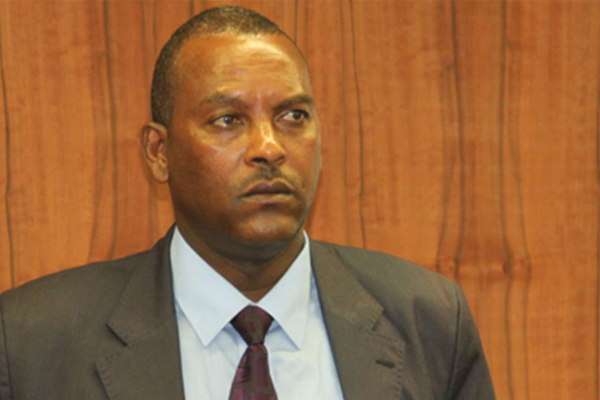
About 15 state-owned enterprises lag audit report deadlines by two to seven years, according to the Office of the Auditor-General.
Out of the Enterprises, the Ethiopian Sugar Corporation topped the list for not being audited for seven years.
The National Lottery Administration, the Metals & Engineering Corporation (MetEC), the Ethiopian Petroleum Supply Enterprise follow with six-year lags. The Transport & Construction Enterprise and Ethiopian Marble Processing Enterprises have not been audited for the past five years. The remaining, including Ethio telecom, have not been audited for three consecutive years.
Public institutions, including chartered organisations and public development enterprises, are expected to conduct a customary internal audit process and carry out an external audit annually. The Office of the Auditor-General is mandated to oversee audit reporting compliance of these institutions.
The Auditor-General is also mandated to identify the existing gaps in the audit report compliance requirements and procedures and report the findings to parliament.
The Sugar Corporation has already set up a finance project office and hired a consultant that has been tasked with the audit process, according to Gashaw Aychiluhim, executive officer of corporate communications at the Corporation.
The audit reports for the first three years have been finalised and submitted to the Audit Service Corporation, which is accountable to the Auditor General.
The Audit Service Corporation, which was established in 1969 to audit public enterprises and now reports to the Auditor General as of last year, already sent feedback on the audit reports of the first two years.
The hired firm is also conducting an audit for three years between 2013/14 and 2015/16, according to Gashaw, adding that the Corporation is finalising its financial report for the three-year period and is getting ready to avail it for external audit. It also plans to complete the whole audit before the end of this fiscal year.
The National Lottery Administration also hired an audit firm that will be tasked with the audit process of the first three years beginning with the 2013/14 fiscal year.
The audit process was already completed for the first fiscal year, and the report was sent to the Audit Service Corporation for feedback and authentication, according to Tewodros Neway, director of public relations at the Administration.
The Administration planned to complete the audit process for the first three years until March 2020 and complete the whole process in the 2020/21 fiscal year, according to Tewodros.
Ethio telecom admits to falling behind schedule on auditing but argues that the company delayed the report only for two years, not three as the Auditor-General claims. For the delay, the company attributes the restructuring that was conducted in 2011.
The company is currently clearing the backlog audit requirements as far back as seven years and completed the audit activities up until the 2016/17 fiscal year. The corporation submitted the report to the Audit Service Corporation a month ago, according to Asseged Ayele, a chief finance officer at Ethio telecom.
Ethio telecom is one of the state enterprises that the government decided to partially privatise. The company is expected to finalise the audit before being privatised.
The company is also converting its reporting system into the International Financial Reporting Standards (IFRS). PwC Global Financial Services did the financial conversion of the company. KPMG East Africa Ltd is also working on the asset valuation of the company, which reached 60pc completion and is expected to be finalised by mid-February.
Bogale Teka, deputy general manager of the Audit Service Corporation, confirmed to Fortunethat these institutions have submitted their reports.
"We've discussed matters with most of the institutions with audit gaps, and they agreed to submit the report within the timetable," Gemechu Dubiso, the Auditor General, said.
The Office demanded from the companies a strict timetable to complete the audit process, but most of them asked for an extension, according to the Auditor-General, who added that the Office is considering the requests.
Compared to budgetary institutions, state-owned enterprises are lax in submitting audit reports in a timely manner, according to Gemechu.
No punitive measures were taken against any of the public institutions failing to comply with audit requirements, even in the case of major irregularities found in the audit reports they submitted, according to Gemechu.
Failure to comply with the audit process of the Auditor-General entails a financial penalty between 10,000 Br to 30,000 Br, or imprisonment between five and seven years.
However, Habtamu Berhanu (PhD), a lecturer in the Department of Accounting & Finance at Addis Abeba University, believes that the penalty-oriented approach might be a less effective tool in addressing audit delays than a systemic approach.
Habtamu believes that the apparent lack of attention given to the importance of auditing in the operations of public enterprises is now increasing at private business organisations.
"Decisions are not being made on the basis of earlier audit findings," he said. "This is partly related to the attitude of the leadership of the public institutions that do not necessarily have the relevant professional background in the field."
Habtamu also recommended the need to address poor managerial perception toward the importance of auditing for improving organisational performance, apart from ensuring public accountability.
PUBLISHED ON
[ VOL
, NO
]

Viewpoints | Jul 20,2024

Radar | Mar 25,2023

Commentaries | Dec 29,2018

Editorial | May 16,2020

Radar | Jun 01,2019

Viewpoints | Nov 27,2021

Life Matters | Nov 07,2020

Fortune News | Sep 03,2022

Radar | Aug 03,2025

Agenda | Oct 30,2021

Dec 22 , 2024 . By TIZITA SHEWAFERAW
Charged with transforming colossal state-owned enterprises into modern and competitiv...

Aug 18 , 2024 . By AKSAH ITALO
Although predictable Yonas Zerihun's job in the ride-hailing service is not immune to...

Jul 28 , 2024 . By TIZITA SHEWAFERAW
Unhabitual, perhaps too many, Samuel Gebreyohannes, 38, used to occasionally enjoy a couple of beers at breakfast. However, he recently swit...

Jul 13 , 2024 . By AKSAH ITALO
Investors who rely on tractors, trucks, and field vehicles for commuting, transporting commodities, and f...

Nov 1 , 2025
The National Bank of Ethiopia (NBE) issued a statement two weeks ago that appeared to...

Oct 25 , 2025
The regulatory machinery is on overdrive. In only two years, no fewer than 35 new pro...

Oct 18 , 2025
The political establishment, notably the ruling party and its top brass, has become p...

Oct 11 , 2025
Ladislas Farago, a roving Associated Press (AP) correspondent, arrived in Ethiopia in...